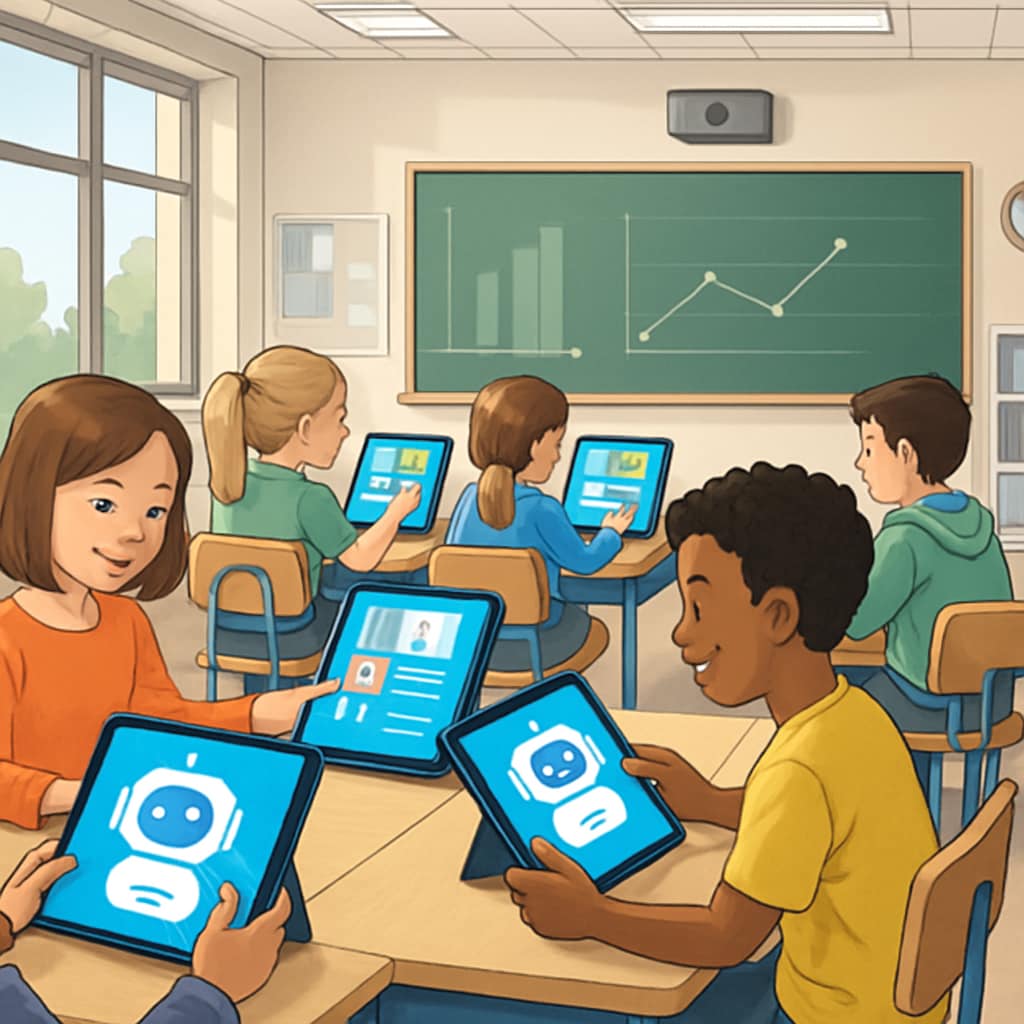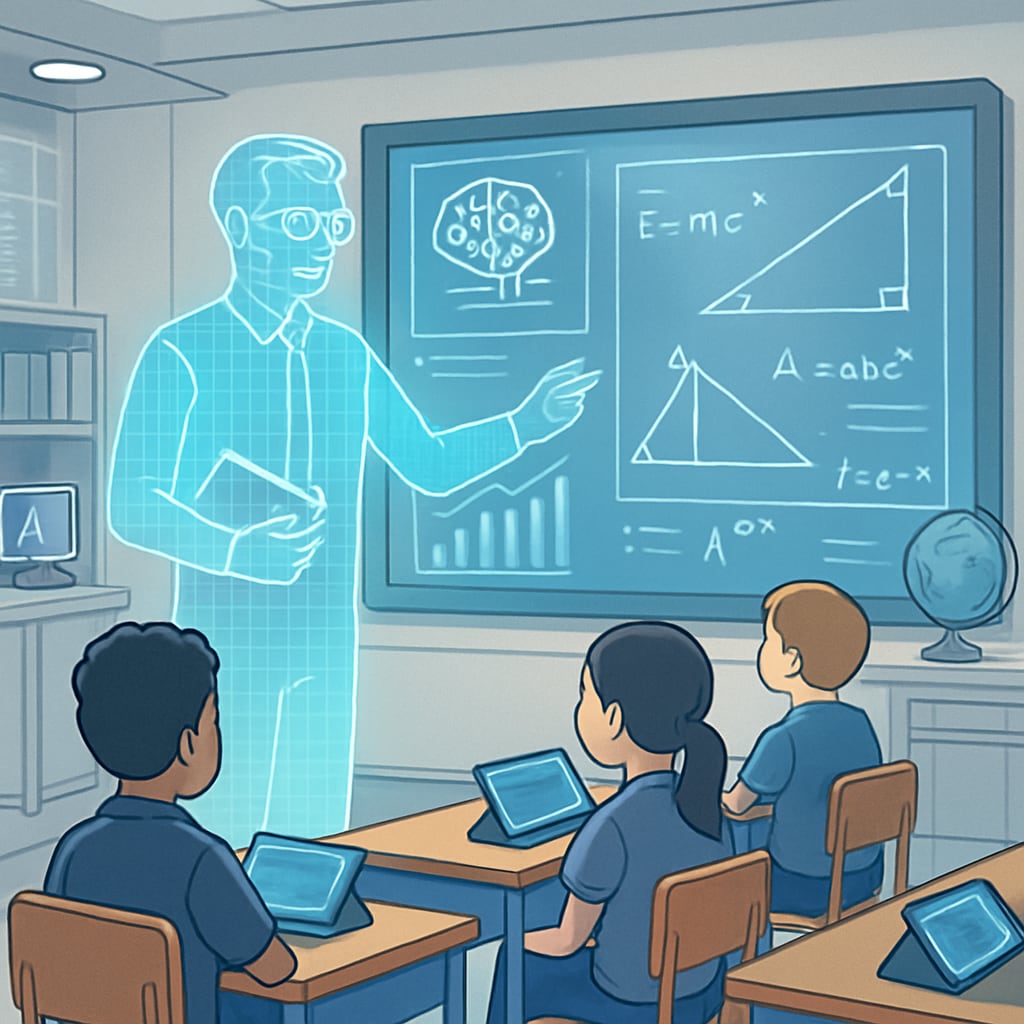Artificial intelligence (AI) is revolutionizing K12 education, driving trends such as personalized learning, adaptive teaching methods, and intelligent assessments. As we look toward 2030, this transformative technology is set to redefine how students learn, teachers instruct, and education systems operate. The integration of AI into classrooms is not just shaping the present but also creating an intelligent and inclusive future for education.
How AI is Transforming Classrooms Today
AI has already begun to make a profound impact on K12 education. Tools powered by machine learning enable personalized learning experiences tailored to each student’s unique needs and pace. For example, platforms like Khan Academy use AI to offer adaptive tutorials, ensuring students focus on areas where they need improvement. Furthermore, intelligent assessment tools can analyze student performance and provide actionable insights for educators.
Key developments include:
- Personalized Learning: AI-driven platforms adjust content delivery based on individual student progress, promoting efficiency and engagement.
- Virtual Tutors: AI assistants provide instant support, answering questions and guiding students through complex topics.
- Enhanced Accessibility: AI tools help students with disabilities by offering features like text-to-speech, visual aids, and real-time translations.

Future Trends in AI and K12 Education by 2030
By 2030, AI will likely play an even greater role in education. Not only will it continue to enhance personalized learning, but it will also introduce groundbreaking innovations that change the dynamics of teaching and learning.
Predicted advancements include:
- Automated Curriculum Design: AI will create dynamic curricula tailored to evolving industry demands and student interests.
- Augmented Reality Learning: AI-powered AR tools will immerse students in interactive simulations for subjects like history and science.
- Global Collaboration Platforms: AI will facilitate seamless collaboration across borders, connecting students and educators worldwide.
As a result, education systems will become more efficient and inclusive. For example, intelligent algorithms will help identify at-risk students earlier, allowing interventions to ensure no child is left behind.

Challenges and Ethical Considerations
While AI offers immense benefits, it also raises significant challenges and ethical concerns. Data privacy, algorithm bias, and equitable access to AI tools are critical issues that educators and policymakers must address. For example, ensuring that AI systems do not disadvantage underprivileged schools or perpetuate biases in assessments will require robust oversight and regulation.
Key areas of focus include:
- Data Security: Protecting student information from unauthorized access.
- Bias Mitigation: Ensuring AI systems are fair and inclusive.
- Cost Management: Making advanced AI tools affordable for all schools.
Conclusion: The Road to 2030
Artificial intelligence is reshaping K12 education, driving trends that will transform classrooms by 2030. From personalized learning to intelligent assessments, AI promises to create a more dynamic, inclusive, and efficient education system. However, realizing this vision requires addressing ethical concerns and ensuring equitable access to AI technologies. As educators, students, and policymakers adapt to these changes, the future of education looks brighter than ever.
In summary, AI’s impact on education is profound and far-reaching. By embracing these technologies thoughtfully, we can ensure that K12 education evolves to meet the challenges of tomorrow.
Readability guidance: This article uses short paragraphs, active voice, and accessible language to ensure clarity. Lists summarize key points, while transitions like “however,” “in addition,” and “for example” enhance flow. Images are positioned to complement the text and add visual value.


